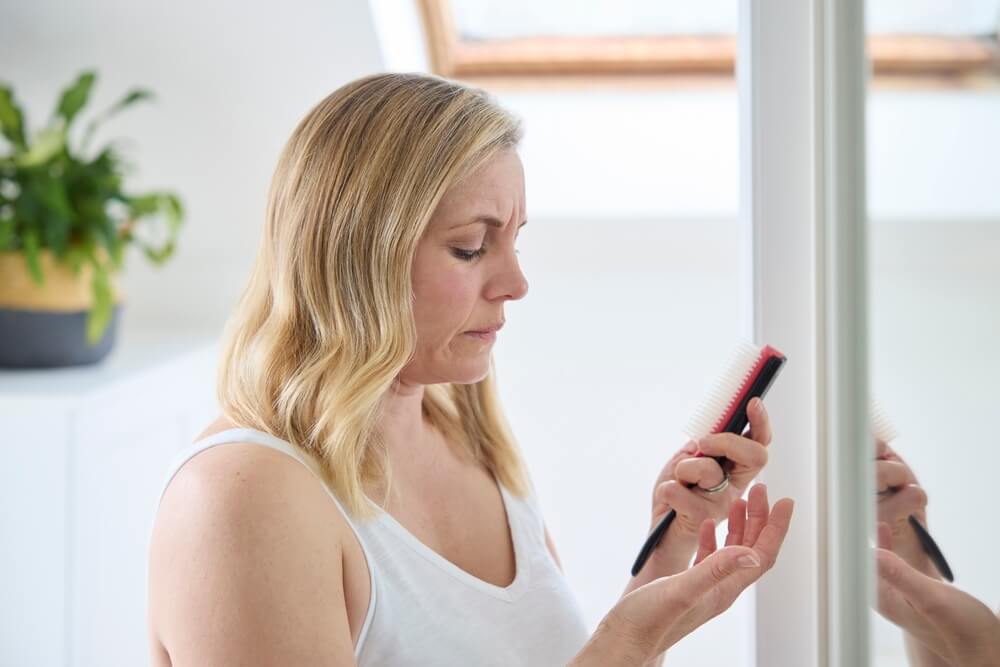People often say that menopause is a period in a woman‘s life when significant changes occur and that those changes, and their symptoms, cannot really be remedied; they just need to be embraced and accepted. This might be true for certain aspects of the menopausal age. Still, experts have worked on offering solutions to women and helping them sometimes overcome very tedious symptoms, and one of those solutions is hormone replacement therapy or HRT.
Clinics such as ACE OBGYN have been offering menopause treatments to their patients for some time now, and based on the feedback received from their clients, the intensity of menopausal symptoms can be lowered with the help of doctors and experts in the field of HRT treatment for menopause.
The way HRT works on women is that it serves as a replacement for the hormones which are lower in the body when menopause approaches. These imbalances in the hormonal level of estrogen and progesterone can cause menopausal symptoms, which are quite uncomfortable and irritating for women, such as hot flashes, pain during sexual intercourse caused by vaginal dryness, insomnia, urinary urgency, night sweats, mood swings, depression, dry skin, etc.
Hormone Replacement Therapy ABCs
Before even considering using HRT, we are bringing you some basic facts about hormones in general, the therapy itself, and what are some benefits, risks, etc.
Estrogen and progesterone are hormones produced by the ovaries that have a crucial role in women’s reproductive health. The hormone estrogen plays a significant role in different body processes such as the thickening of the uterine lining, preparation for egg implantation, usage of calcium in the body, maintenance of blood cholesterol levels, prevention of osteoporosis, vaginal health, etc.
On the other hand, progesterone helps with preparing the uterus for fertilized egg implantation and maintains the pregnancy, regulates the person’s blood sugar, and helps with mood swings and sleep. Both of the mentioned hormones can become lower as the person reaches menopause, so many doctors recommend using HRT for women who are about to begin their menopause journey.
HRT is used as a booster for hormone levels in the body, and that can be very helpful as a menopause treatment if we are speaking about relieving different symptoms. You have to consult with your medical doctor before deliberating whether or not to start hormone replacement therapy because the outcome might depend on your age, your personal and family medical history, and how severe your symptoms are.
When it comes to types of HRT, there are two main types that doctors recommend:
- Estrogen Progesterone/Progestin Hormone Therapy or HRT is a therapy that combines both doses of progesterone and estrogen, so it is referred to as combination therapy.
- Estrogen Therapy is an approach where estrogen is taken on its own, and it is most often prescribed to patients to take a low dose of estrogen in the form of a pill or a patch, as well as a vaginal ring, pessary, gel, spray, or cream. This can be used as an osteoporosis treatment, as well.

Patients most often start with a lower hormone dose which can be increased later on, with the approval from your doctor. It might take some time to see the real effects of the treatment, and you might experience specific side effects, which will be discussed in the continuation of this blog post. The therapy can be used continuously or in cycles, depending on what your doctor prescribes is best for you.
Certain patients might not be eligible for hormone replacement therapy, and they include:
- People with a history of breast, ovarian, or uterine cancer
- People who had or currently have blood clots
- Women experiencing abnormal vaginal bleeding
- If the person had a heart attack or is suffering from a vascular disease
- People with high blood pressure who have uncontrolled hypertension
- People with liver disease
- Pregnant women
When patients suffer from one of these conditions, some alternatives to HRT are offered to them to prevent them from experiencing potential side effects that can occur when taking hormonal therapy.
Benefits of HRT Treatment for Menopause
As this medical approach to menopausal symptoms is there to relieve them and help the patient go through this period as easily as possible, the first benefit would then be the lower intensity of menopause symptoms which include night sweats, itchy skin, vaginal dryness, reduced sex drive, hot flashes, etc. Other benefits of HRT include:
- Osteoporosis treatment also includes reducing the risk of developing this condition and removing risk when it comes to bone fractures.
- Decrease in teeth loss
- Improvement in mood swings and mental health
- Lowering the risks for colon cancer and diabetes
- Less joint pains
- Lowering death rates in women over 50
- Decreased risk of development of Alzheimer’s disease or dementia if taken during midlife

Side Effects and Risks
While most experts state that the benefits of HRT outweigh the risks, mentioning the potential risks you agree to if you start taking hormone replacement therapy is essential. The risks most often are:
- Increase in chances of getting breast cancer or endometrial cancer (if you still have a uterus)
- Increase in chances of developing blood clots or/and having a stroke
- Increased risk for dementia if HRT is taken after the midlife period
- Increased risks for gallbladder issues
Regarding side effects, you might probably experience some of them during the first weeks of using HRT. They can include, but are not limited to:
- Monthly bleeding (for patients with a uterus)
- Spotting, which occurs very irregularly
- Mood swings
- Tenderness in the breasts
- Retention of fluids
- Migraines
- Nausea
- Issues with indigestion
- Pain in the abdomen
- Black or brown spots on the skin (discoloration)
- Irritation on the skin if you are using an estrogen patch
- Increase in breast density
The reduction of side effects is most often not needed because they are quite mild and do not last for a long time. If the side effects do last longer, and you do not feel comfortable, contact your medical doctor because that might mean you need to readjust your dosage of HRT.
Are There Any Alternatives to HRT?
If you are one of those persons who are not suitable for HRT, there are some other alternative options which include lifestyle changes such as healthy dieting, exercising, avoiding certain foods and beverages, and alike. Also, when it comes to medications, some antidepressants can be taken to control hot flashes and mood swings, as well as clonidine, a non-hormonal medicine used to reduce night sweats and hot flashes.
Whatever you decide to do, do not take any medication without the supervision of your medical doctor. It can bring you more harm than good, so make sure you talk to a doctor about your concerns first.
Call Us!
Whether you are just deliberating about HRT or have decided to start using it, call our specialists for consultation and guidance on the best options that will suit your particular needs.

